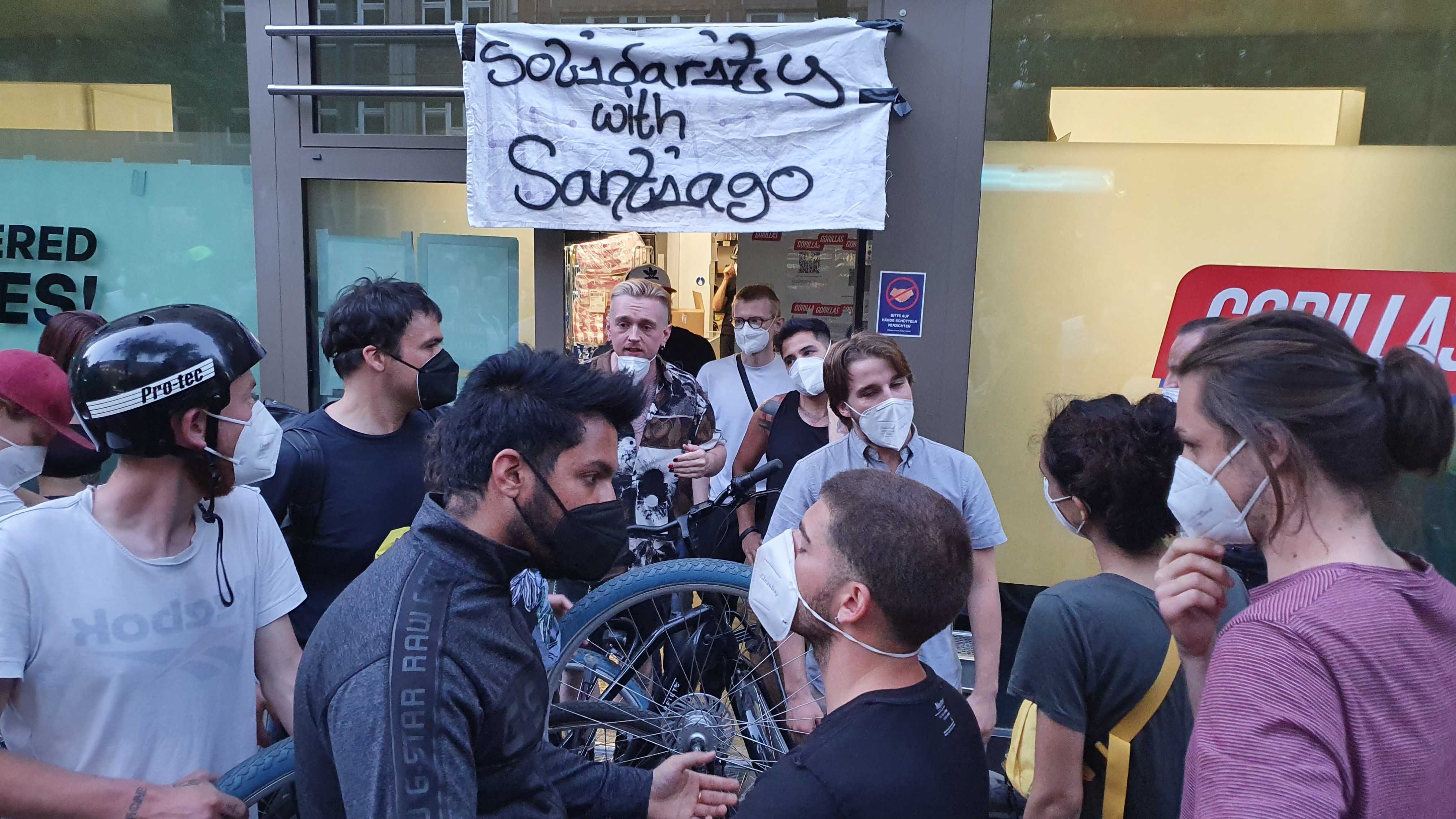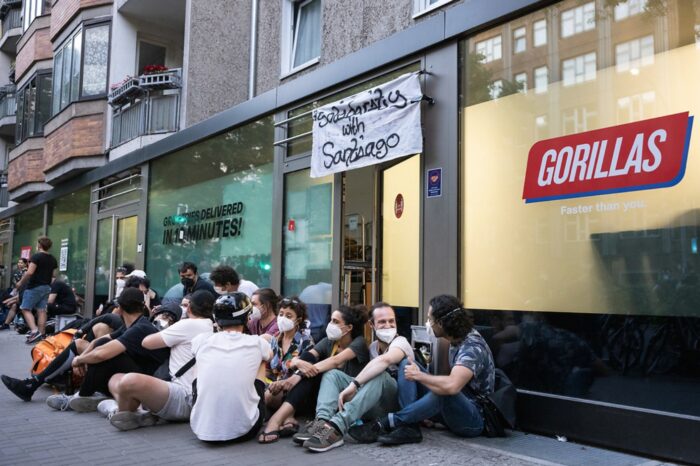Berlin workers at the food delivery service Gorillas show solidarity with a dismissed colleague in a spontaneous strike. With a blockade of the warehouse in Prenzlauer Allee on 09 June, they wanted to force the reinstatement of Santiago, who was dismissed during his probationary period.
Organized as Gorillas Workers Collecitve, they also demand the abolition of the six-month probationary period. Since working at Gorillas is only a transitional job for many, this probationary period has so far been an effective means of nipping any form of workers' struggle in the bud.

The fact that the company has been able to expand rapidly in just one year is, of course, due not only to aggressive advertising and domestic quarantine as a mass phenomenon, but also to the squeezing of delivery drivers who call themselves riders. Delivery in ten minutes is promised by the company. The drivers then have to somehow manage the fulfillment of this promise. All of this is masked in the usual contemporary start-up manner with propaganda: "flat hierarchies," "we're one big family," and all that bullshit. Working under the worst conditions is supposed to be made palatable as a lifestyle. But cycling in trendy black clothes naturally doesn't make up for the time pressure in wind and weather with pay just above the minimum wage.

The spontaneous strike in solidarity with a colleague is an an important step even beyond that, because it means breaking with the reactionary German right to strike, which does not allow strikes without the leadership of a yellow union. Workers who stand up for their interests as a class without asking whether they are allowed to do so are a thorn in the side of this state. So the cops were directly at the scene, also with plainclothed police officers from the state security. The head of the company did not comply with the demands so far, but reacted upset and with phrases about his love for cycling. Gorilla's "recipe for success" is to be continued at all costs and exported abroad. One rider touched on the completely conflicting interests of workers and owners with a question: "Why is it harder for Gorilla to provide good working conditions than to launch branches in France and New York?"










